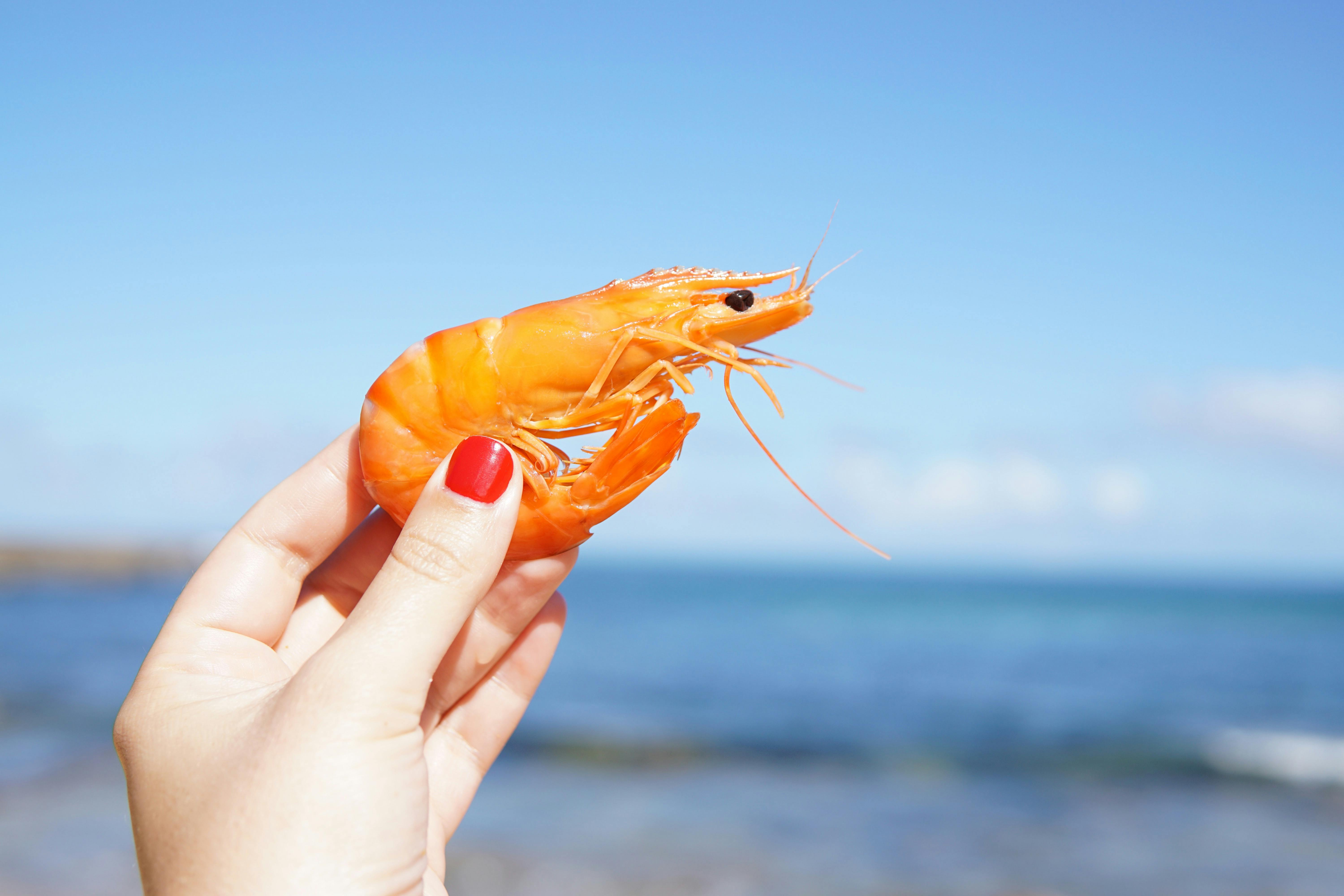
By Wag! Staff
Published: 08/10/2021, edited: 06/14/2024
More articles by Wag! Staff
Save on pet insurance for your pet
You don't have to choose between your pet and your wallet when it comes to expensive vet visits. Prepare ahead of time for unexpected vet bills by finding the pawfect pet insurance.
Shrimp is a mainstay of cuisines around the globe and like so many other parts of human diets, we suspect our dogs would love them just as much as we do. But can dogs eat shrimp?
The short answer is yes, dogs can eat shrimp — but only if they’re cooked and the shell’s removed. In fact, shrimp can be good for dogs in small amounts. They provide several important nutrients and most pets love the taste.
Before parents start filling up their dog’s bowl with shrimp, there are a few things that need to be considered.
Read on to find out the facts about shrimp and dogs, including these key takeaway nuggets of wisdom:
Read on to find out the facts about shrimp and dogs, including these key takeaway nuggets of wisdom:
- Dogs can eat shrimp, but the shell must be removed beforehand and it needs to be cooked thoroughly
- Raw shrimp is a definite no, as are shrimp tails and any shrimp dish containing human ingredients, such as onion and garlic
- When prepared properly, shrimp can be a great source of protein, vitamins and minerals
- However, it should only be considered a treat and must not replace nutritionally complete dog food
- Parents feeding shrimp to dogs need to be aware of the symptoms of Shellfish Allergies and Pancreatitis
Shrimp: good or bad for dogs?
Is shrimp bad for dogs, or can it be a healthy addition to their diets? When prepared correctly and served in sensibly sized portions, shrimp can be a great source of essential nutrients, including:
- Vitamin B-12 for metabolism and gastrointestinal (GI) health
- Niacin for the production of energy and fats, blood circulation, and enzyme function
- Antioxidants to slow brain aging and fight free radicals that can case cancer
- Phosphorus to build strong bones
- Iodine for thyroid health
- Omega-3 fatty acids for anti-inflammatory functions
Shrimp is also low in fat, carbs and calories, while containing hefty amounts of healthy protein. It’s for this reason that it’s occasionally spotted as an ingredient in commercially prepared dog food, such as Life’s Abundance Turkey and Shrimp in Broth recipe.
It’s not all good news, however. Shrimp is high in cholesterol, so it should only be given to dogs in moderation.
How Can Parents Feed Shrimp To Dogs?
If parents decide to give shrimp to their dogs, it’s important they follow certain rules.
Can Dogs Eat Raw Shrimp?
No, dogs cannot eat raw shrimp. This is because it can contain bacteria like Listeria, E.coli, and Salmonella that can make your dog sick. These diseases can even be passed onto parents from their pet.
Can Dogs Eat Cooked Shrimp?
The shell also needs to be completely taken off beforehand — even a small piece can present a choking hazard or cause an intestinal obstruction, sometimes requiring surgery.
It’s important that the cooked shrimp is completely plain and unseasoned. Excessive amounts of salt can be bad for dogs, as can consumption of toxic ingredients such as onion and garlic.
It’s a matter of personal choice whether to devein the shrimp or not. The black strip is the shrimp’s digestive system, so if you get a little queasy thinking about eating that, take it out by all means.
Ultimately, it gets thoroughly cooked along with the rest of the shrimp and is harmless. Eating the vein raw could cause food poisoning, however.
Ultimately, it gets thoroughly cooked along with the rest of the shrimp and is harmless. Eating the vein raw could cause food poisoning, however.
Can Dogs Eat Shrimp Tails?
No, dogs can’t eat shrimp tails. This is because the shell poses a choking hazard and could potentially lead to an intestinal blockage.
How Much Shrimp Can Parents Give To Dogs?
Parents should think of shrimp as a treat for their dogs, rather than something with which to replace meals. This is because it’s not a nutritionally complete foodstuff for dogs and is lacking in important substances. Like all treats, shrimp should never make up more than 10% of your dog’s diet.
In terms of portion size, half a shrimp should be enough for toy breeds and a full one will do for small dogs the size of a Cocker Spaniel or Beagle.
Medium breeds (think Border Collies or Whippets) can safely be given two, while those slightly larger (Labrador Retriever and German Shepherd territory) can eat three in one go. Extra-large breeds can have up to four.
Medium breeds (think Border Collies or Whippets) can safely be given two, while those slightly larger (Labrador Retriever and German Shepherd territory) can eat three in one go. Extra-large breeds can have up to four.
Parents need to consider whether shrimp can be given whole or if it needs to be chopped up into bite-sized pieces to prevent choking. These chunks can be mixed into food or given as treats.
Potential Side Effects of Eating Shrimp
While many dogs will be able to tolerate shrimp, there will be some who suffer adverse reactions after eating it.
Shellfish Allergy
Some dogs will be unlucky enough to suffer from a Fish Allergy. Fortunately, this is rare and the symptoms are usually only mild, including:
- Diarrhea
- Vomiting
- Difficulty swallowing
- Loss of appetite
- Lethargy
- Skin infections
- Ear infections
- Itching
- Dry, scaly skin
Pomeranians have especially sensitive stomachs and consumption of shrimp might lead to gastrointestinal upset.
If your dog exhibits any of the listed symptoms and you suspect it might be a shellfish allergy, you should contact your vet immediately and seek guidance.
Pancreatitis
It’s been reported that dogs have suffered from a bout of Pancreatitis after shrimp — this is usually a large portion that far exceeds the recommended amount.
Symptoms of Acute Pancreatitis include:
- Hunched back
- Repeated vomiting
- Signs of pain
- Abdominal bloating
- Diarrhea
- Loss of appetite
- Dehydration
- Weakness
- Fever
Again, it’s important to call the vet straight away if you notice any of these symptoms or have caught your dog eating large amounts of shellfish.
A solid pet insurance policy will remove some of the stress surrounding costs when it comes to an emergency situation, such as Acute Pancreatitis or an allergic reaction — use Wag!’s online comparison tool to find the best deal for you and your pet.
You may also like
